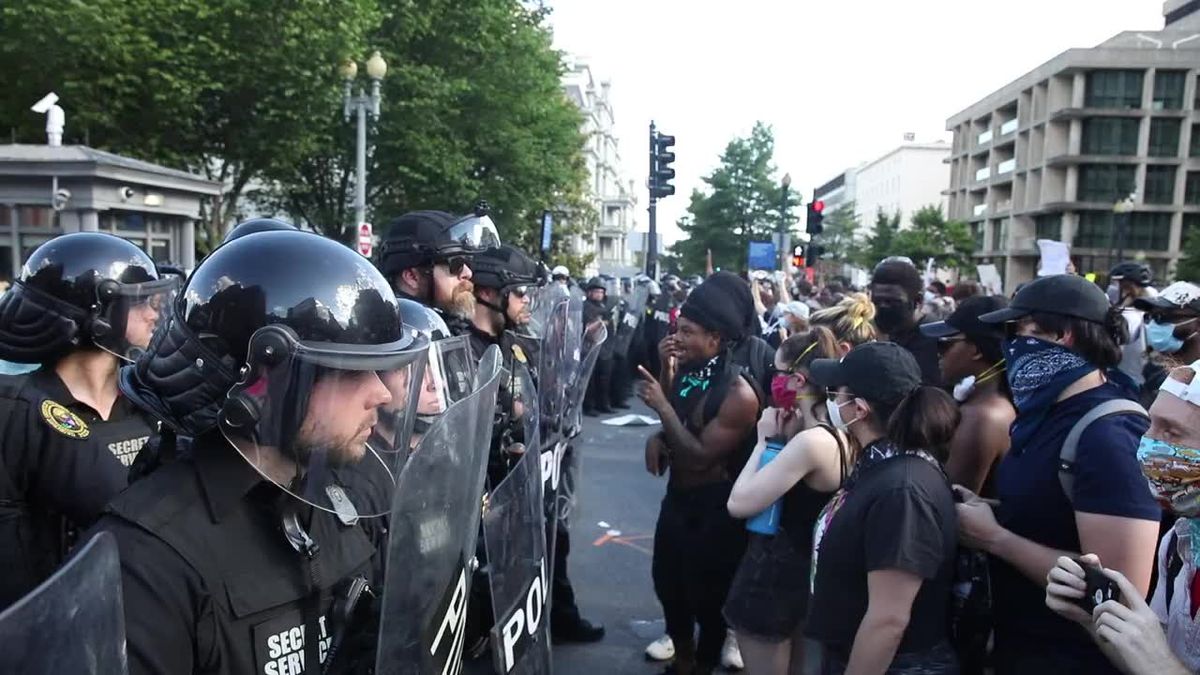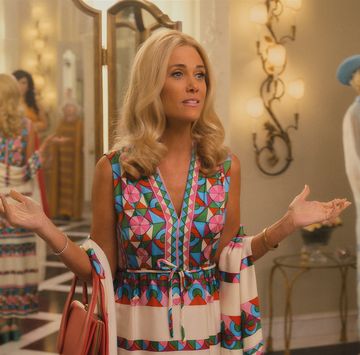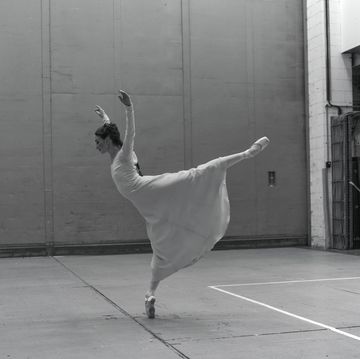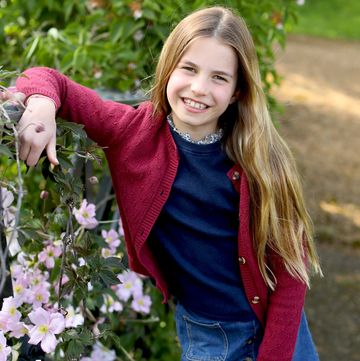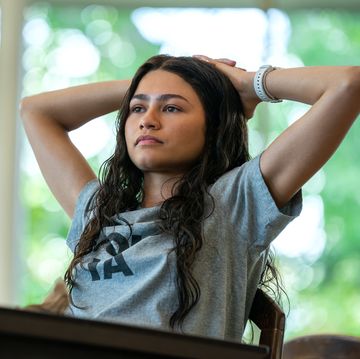In 2013, George Zimmerman was acquitted of murdering an unarmed Black teenager called Trayvon Martin. Like many others, Opal Tometi, an American activist who had long fought for civil rights, was brought to tears by the news. She had a 14-year-old brother, who she feared could meet the same fate.
As she scrolled through Facebook in the aftermath of Zimmerman’s acquittal, she saw a post from a fellow activist called Alicia Garza, whom she had met at a leadership programme. The post read: ‘Black people, I love you. I love us. Our lives matter’. Underneath, Patrisse Cullors had left a hashtag #blacklivesmatter. After contacting Garza, Tometi set up the domain name for Blacklivesmatter.com and the three women became founders of a global historic movement.
Seven years later, their collective efforts in fighting racism reached a crescendo after the murder of George Floyd, who was killed by a police officer who knelt on his neck until he was no longer able to breathe.
“George Floyd was crushed to death,” Tometi says. “It was traumatic and visceral and almost symbolised the ways in which some people felt that they were already having their lives taken away from them - how they felt crushed by the ways in which the world works. Watching a man having his life taken away from him in broad daylight with people standing around was almost unconscionable, and yet it happened. People saw the video and felt so ashamed that things had become so bad in the United States and that they had not done enough to stop it.”
If 2020 has taught us anything, it’s that we do not operate in the same playing field. International governments might have told us that Covid-19 was a great leveller, but the opposite turned out to be true as it transpired that Black people (in the UK at least) are twice as likely to contract the virus, and Black men are four times as likely to die from it. “Black people can’t catch a break, even in a global pandemic,” Tometi tells us in a call from New York. “People were confronted with this contradiction and realised that apathy and not getting involved was no longer an option, so millions took to the streets. They recognised that for this to have happened, for George Floyd to have been killed in this way, that there must have been other challenges and other types of violence that they hadn’t seen. People were protesting against all of it.”
Between 15 and 26 million people participated in US demonstrations following the death of George Floyd in May. There have been protests in 60 countries and on every continent except Antarctica, and some analysts say it may well be the biggest movement in US history. Last weekend, BLM won the Global Citizen Prize for Activism, as part of the organisation's annual award ceremony, which was of course held digitally this year. "This is a great celebration of our collective courage and the fact that people of conscience are stepping up in a time that requires it," she says. "It’s amazing to see the international community unite and for the Global Citizen to tell us, 'What you’re doing is right on.'"
While Tometi is glad to see such growing support and award recognition, it’s not just the numbers that show her that progress is happening. She highlights it’s a sign of the movement’s evolution that so many people now understand that racism is not limited to police brutality, but that it also shows up via everyday micro-aggressions that might be less overt, but are still painfully damaging.
“Police brutality is the most visible and visceral manifestation of racism, but every day we, as Black people, experience degradation,” she says. “It was always important for us that people start to understand and learn about those micro-aggressions. That people now understand that better, is one of the most heartening things to come out of this year. People are now challenging their workplaces, or schools; they’re doing it for themselves. They feel more empowered to make that change happen.”
Tometi was born and grew up in Phoenix, Arizona to Nigerian parents. Although discussion about civil rights wasn’t standard dinner table conversation, her mother and father were committed church-goers and the family would regularly spend weekends helping those in need. She witnessed first-hand the challenges her close Black immigrant community had to contend with after her parents faced deportation for being undocumented. They won their case and remained in Phoenix, but the experience galvanised a young Tometi to become involved in the larger immigrants’ rights movement, volunteering at the ACLU as a legal observer at the US-Mexico border. She later went on to become an executive director at Black Alliance for Just Immigration, an immigrant rights group, which is what she was doing when she first saw Garza’s Facebook post about Trayvon Martin in 2013. She says the negative rhetoric around immigration is another sign of racism, and an issue that pervades the UK.
“Black racism is a global phenomenon,” she says. “It might have an egregious manifestation in the US, but the fact of the matter is that there are manifestations happening around the world. In the UK, we see it in the healthcare disparities, in the workplace and in the level of police brutality. There are higher rates of incarceration among Black men in the UK. There are ways in which it plays out there, and there is a dimension of it that relates to immigration. Much of the violence that happens towards people of colour often happens to immigrants of colour. I frequently tell my friends who are human rights activists in Europe to pay attention to that.”
She adds that the scale of the BLM protests in Britain (tens of thousands turned up for the London protests alone) are indicative that racism is a big problem on our shores, not just in America. “The amazing uprising in the UK this year was a great show of solidarity, but people were also showing up for themselves. They showed up because they too were and are impacted by these issues, perhaps in a different way to the US, but they were still affected by forms of racism in the UK. It’s a threat to justice everywhere.”
One of the most divisive issues advocated by Black Lives Matter is the idea of defunding the police, the notion of reallocating funding from over-militarised police forces towards mental health resources and education to better serve Black communities and to ensure that the police don’t have to deal with issues that they’re ill-equipped to handle.
“You can’t keep doing the same thing and expect the same results,” she says firmly. “The idea that we continue to pump more and more money into the police and expect a different result other than Black people being killed in the streets or disproportionately imprisoned doesn’t hold up. Let’s put money into education, mental health services and issues around homelessness. There is a number of things we can do that will lessen police interaction with our community and would actually keep us safe.”
Tometi has little time for criticism that the wording of such phrases might be polarising. She laughs that the people who once told her that ‘all lives matter’ are the same people who decry the phrasing of defunding the police. “We have all seen the videos and the data, do not tell me that I am saying the wrong phrase, that this is about my wording,” she says. “Black lives are not theoretical: we are human beings. I’m not talking about theoretical problems here; I’m talking about real consequences that are playing out every day in our lives. These gaslighting efforts are really about distracting us from the conversations so that we end up talking about wording and semantics, rather than the issue at hand. Stop telling me I don’t have the right words.”
The next steps for the BLM movement will be important. It’s time, she says, for governments to put their money where their mouths are in terms of investing in Black communities and holding themselves accountable for the damage caused by not doing so sooner. “We need to codify what we’ve learnt – we’ve seen uprisings, but we need to have a society that backs it,” she explains. “We need those in power to say, ‘these are the laws and practices that are now in place’ to make sure racism stops. The fact that we’re in a global pandemic that Black people are facing the worse of is not a surprise. This is a result of disenfranchisement that preceded this time. Black communities were already on shaky ground, people were only barely making it already, so the pandemic tipped a lot of people over.”
She stresses that equity and a fairer society means more than law and policy changes, and more than better representation. It also requires money. “We live in global capitalist world, so we have to talk about resource distribution and whether people have access to the capital they need so that their lives work. Real resources have to accompany those values. You can’t just say it, you have to put some substance behind it.”
For now, Tometi is just looking forward to Christmas and taking a moment to look back on what’s been achieved this year. “I’ve been doing this kind of work since I was 15 – I was always doing something to promote diversity,” she says. “I’ve thought about this for so long, and it’s finally beginning to happen in the way I longed for. I have longed for this time and finally people are joining the movement.” She pauses before continuing, “I’ll take a beat and celebrate, but also the struggle continues and so does the work.”
Global Citizen is the world's largest movement of action-takers and impact-makers dedicated to ending extreme poverty by 2030. For more information visit globalcitizen.org.
In need of some at-home inspiration? Sign up to our free weekly newsletter for skincare and self-care, the latest cultural hits to read and download, and the little luxuries that make staying in so much more satisfying.
Plus, sign up here to get Harper’s Bazaar magazine delivered straight to your door.

